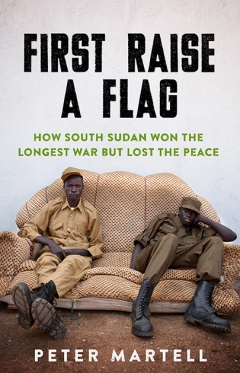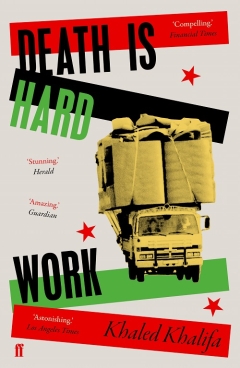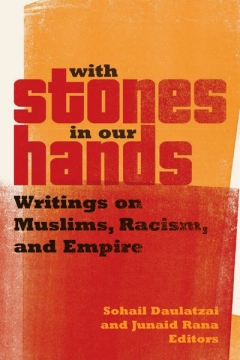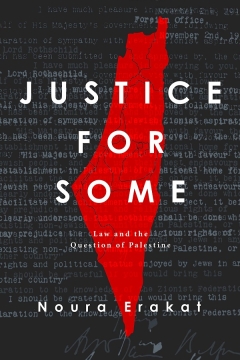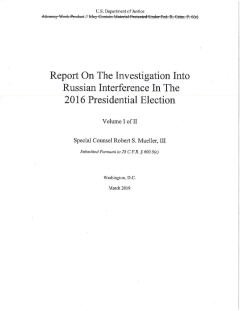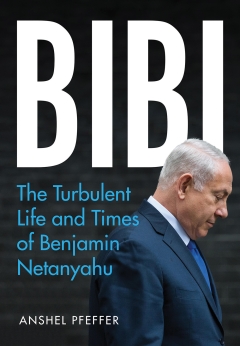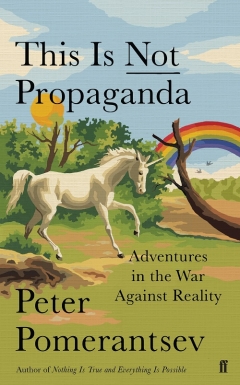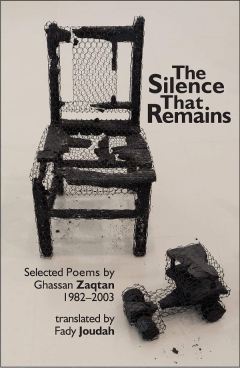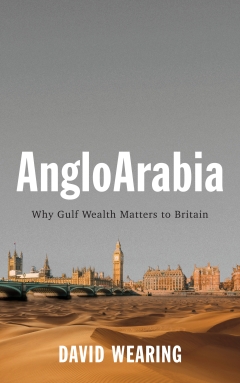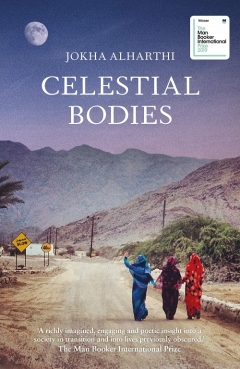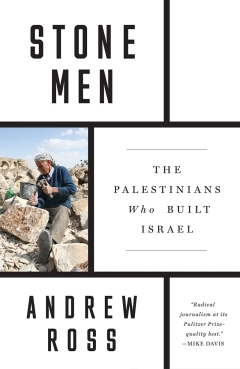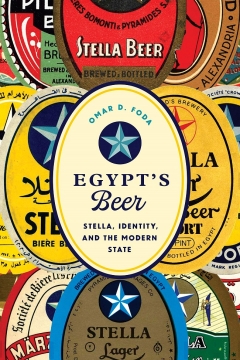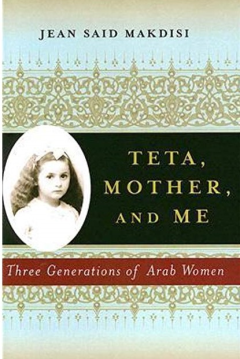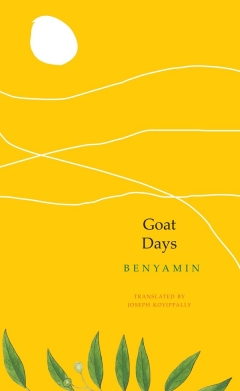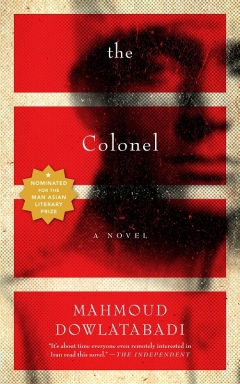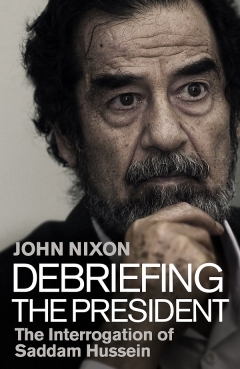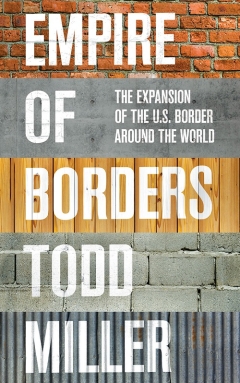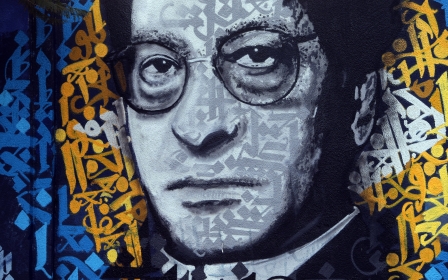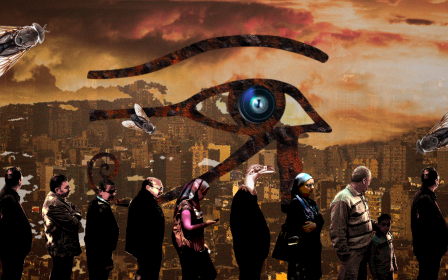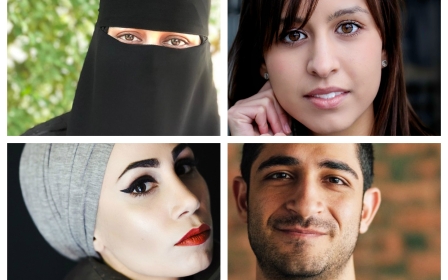The best Middle East books of the year - picked by Middle East Eye writers
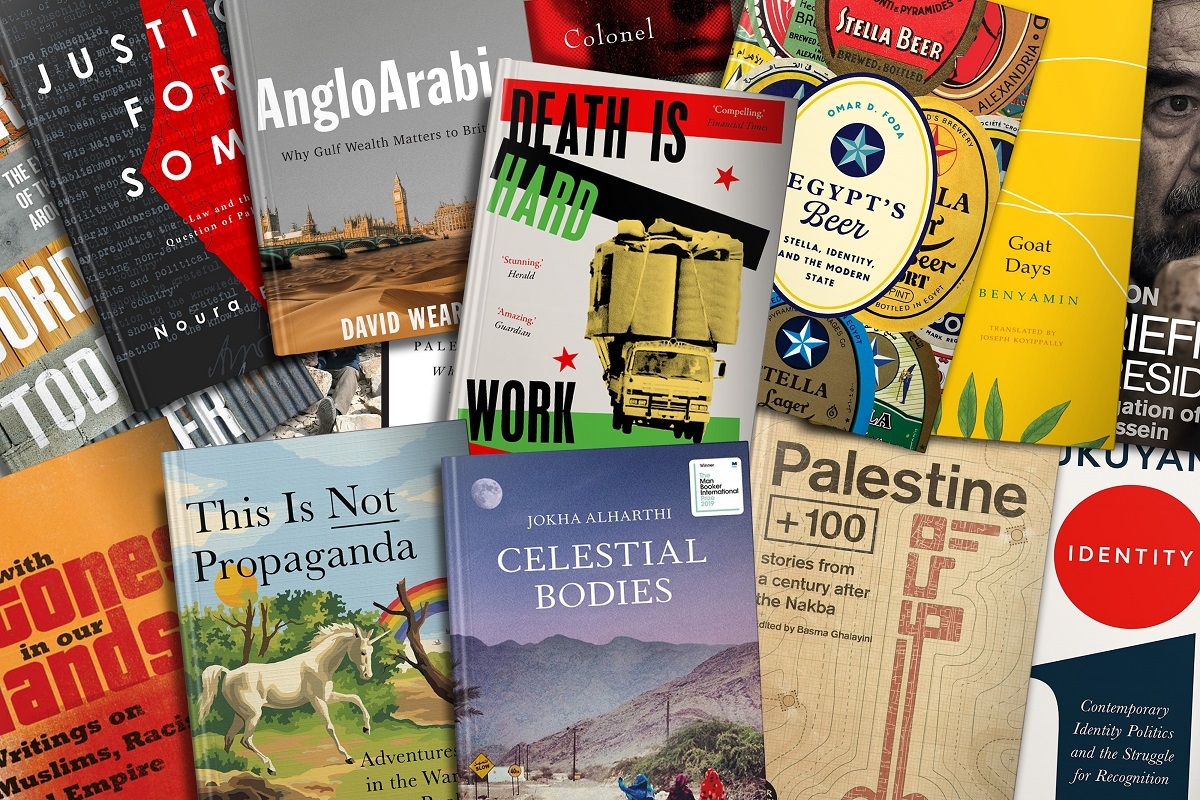
Middle East Eye staff and writers plough through a fair few books each year, from fiction to politics, poetry to history. Amid the bending shelves, a few themes can be discerned.
First, fiction unearthing the complexity of family relationships proved popular, especially when shedding light on current or historic conflicts: see, for example, award-winning novels such as Celestial Bodies by Jokha al-Harthi or Khaled Khalifa's Death Is Hard Work.
The future also fascinates, including the much lauded dystopian collection Palestine +100, edited by Basma Ghalayini, which helps imagine manifold futures for a land which many forces are struggling to control.
Second, a number of the choices were published by smaller presses, many of whom operate on minimal resources and are forced to take high risks in a publishing environment dominated by giant rivals and the often crippling impact of Amazon's profit margins.
Third, our list includes volumes that were not necessarily published in 2019 but were still relevant in untangling the geo-politics of 2019 - a reminder, perhaps, amid all these ephemeral end-of-year lists, of the permanence and legacy of the printed word.
New MEE newsletter: Jerusalem Dispatch
Sign up to get the latest insights and analysis on Israel-Palestine, alongside Turkey Unpacked and other MEE newsletters
Finally, many of the works listed below originally appeared in Arabic, Farsi and other languages which originate in the region. That they are increasingly finding an audience among English-speaking readers and audiences is testament to their translators, whose efforts to take literary works beyond their original markets too often go unacknowledged.
Peter Oborne
The long and bloody struggle for independence in South Sudan has been underreported and misunderstood. The human tragedies which surround it are as profound as those of Iraq or Afghanistan.
I was utterly gripped by Peter Martell’s superbly written First Raise a Flag: How South Sudan Won the Longest War but Lost the Peace (Hurst Publishers). It’s expertly organised and holds the reader from start to finish. Peter Martell tracks down the Mossad commander who intervened to save the South from crushing defeat at the hands of Khartoum in the 1970s. He brings to life the South Sudanese fighters while placing the conflict in its international context.
At the heart of his account is the South Sudanese themselves. This is a more than a very fine piece of journalism. It's a masterpiece.
I also enjoyed Lords of the Desert (Simon & Schuster) by James Barr, an account of the struggle for dominance of the Middle East after World War Two, won hands down by the United States, which subverted Britain at every turn.
He records how a young Tory researcher called Enoch Powell sought an audience with future Tory prime minister Anthony Eden after the war. "I want to tell you that in the Middle East our great enemies are the Americans," the young Powell told the elder statesman. Eden looked at him as if he was mad. But Powell had the last laugh. Eden was later to reflect: "I had no idea what he meant. I do now."
Peter Oborne won best commentary/blogging in 2017 and was named freelancer of the year in 2016 at the Online Media Awards for articles he wrote for Middle East Eye. He also was British Press Awards Columnist of the Year 2013. He resigned as chief political columnist of the Daily Telegraph in 2015. His books include The Triumph of the Political Class, The Rise of Political Lying, and Why the West is Wrong about Nuclear Iran.
Simon Hooper
The suffering and slaughter of the Syrian people has become such a dispiritingly mainstay of Middle East news coverage during the past eight years that one is left wondering what more journalists can contribute to the record beyond chronicling a still-daily litany of lives lost.
Novelist Khaled Khalifa’s achievement in Death is Hard Work (translated by Leri Price, Faber & Faber) is to take the humanity-sapping daily dangers, shortages and tedium of years of war as his subject and present them in a way that is compelling, and urgent, even as the story becomes grimmer with each page turned.
The narrative follows one man’s journey, with his estranged siblings, from Damascus to the rebel-held north to bury the decaying corpse of their idealist father, a suitable metaphor for the Syrian body politic.
Passages describe their encounters with bored, sometimes callous, sometimes compassionate soldiers at checkpoints as well as packs of stray dogs in abandoned villages, shattered by shelling and air strikes. Too often it feels like reportage rather than fiction.
Simon Hooper is Head of Investigations at Middle East Eye.
Azad Essa
During 2019, the anthology With Stones In Our Hands: Writings On Muslims, Racism And Empire (University of Minnesota Press) felt like a handbook to better understand the historical vilification of Muslims around the globe.
Edited by Sohail Daulatzai and Junaid Rana, it traces the history of anti-Muslim bigotry, resistance to colonisation and occupation in Muslim-majority countries as well as the cultural demonisation of the Muslim figure in the West.
The authors argue that the transformation of the western gaze towards Muslims from one of ideological difference to one of a racialised object began during the 15th century: Fortress Europe, modern xenophobia and racism and the dehumanisation of Palestinians and the like, can all trace their roots back to Catholic Spain and the expulsion of the Moors.
The anthology is also a rage against liberal assumptions that white supremacy starts and ends with personalities such as Donald Trump or Boris Johnson. Instead it unpacks the rampant anti-Muslim posturing across the political spectrum and argues that it is part of a “deeper malaise that sits at the heart of the purportedly democratic West”.
In August, the Indian government abrogated Kashmir’s semi-autonomy, with plans to impose a colonial-settler project not unlike that exercised by Israel. Resisting Occupation in Kashmir (University of Pennsylvania Press) could not then be more timely. Edited by Haley Duchinksy, Mona Bhan, Ather Zia and Cynthia Mahmood, it decolonises the narrative around Kashmir’s right to self determination, rejecting the nationalist parameters that have long rendered Kashmiris invisible by invoking the conflict as merely a “dispute” between India and Pakistan.
The result is a collection of ground-breaking essays that depicts Kashmiris as active agents and not the mere subjects of a “conflict zone”, exploring the repression of the Indian state and attempts by Kashmiris to resist.
Azad Essa is a Senior Reporter for Middle East Eye based in New York. He has previously worked for Al Jazeera English and is the author of The Moslems are Coming and Zuma's Bastard.
Richard Falk
During 2019 I was fortunate to read two books that educated while being so innovative as to be enjoyable.
Noura Erakat’s Justice For Some: Law And The Question Of Palestine (Stanford University Press) is an arresting account of why international law is consistently on the side of the Palestinian people and yet they remain entrapped in a seemingly endless oppressive ordeal. It’s a brilliant jurisprudential expose of why law without supportive geopolitics is impotent.
Andrew Ross’ Stone Men: The Palestinians Who Built Israel (Verso Books) is just as illuminating, reminding me that despite years of reading and reflection I had much to learn about the Israeli transition from dream to its problematic reality.
Through extensive interviews, Ross documents how it was Palestinians who actually built Israeli cities, contradicting Zionist narratives. He also analyses the tensions within the Jewish labour movement caused by entrepreneurs employing cheaper, more skilled, Palestinian workers.
Richard Falk taught at Princeton University for 40 years. In 2008 he was appointed by the UN to serve a six-year term as the Special Rapporteur on Palestinian human rights. He is also a contributor to Middle East Eye.
Dania Akkad
One of the more important pieces of writing of the year was a report – the Mueller Report investigating alleged Russian interference in the 2016 US presidential elections.
Sure, the 448-page, two-volume monstrosity, published back in April, is not exactly a book, although several publishers have reprinted it as such, including a couple of graphics novels.
But should it be on a list of reads of the year? Definitely.
Have I read all of it yet? Well, frankly, no (and unfortunately, when it comes to members of Congress, I’m not alone).
Skip over the redacted bits and some of the legalese, and you are left with an international thriller of critical importance – and a resource that keeps on giving if you are covering the intersection of the Trump administration and the Middle East.
It’s also free and online. Time to read the whole thing? Yes it is.
Dania Akkad is Senior Investigations Editor at Middle East Eye
Daniel Hilton
It’s been a busy year for those following Israeli politics, with two inconclusive elections and Prime Minister Benjamin Netanyahu’s indictment. How fortunate, then, that Anshel Pfeffer’s excellent biography Bibi: The Turbulent Life And Times of Benjamin Netanyahu (Hurst Publishers) was around to help make sense of it all.
Pfeffer profiles a man who revels in razzmatazz, furiously pursues the art of hasbara (Israeli PR) and repeatedly lets others pick up his restaurant bills. Netanyahu’s also the kind of guy, we learn, who doesn’t take election defeat lying down and can - gasp - survive a sex scandal.
But Pfeffer’s book is more than a biography of Israel’s prime minister: it’s also an intimate potted history of Israel and Zionism. Here, from a senior Haaretz journalist, is the inside story of Israel’s bloody and brutal founding and enduring.
Populating this history is a dizzying cast of characters, including Ehud Barak, Netanyahu’s former commander in the Sayeret Matkal special forces unit who became a chief political rival; and Yasser Arafat, the Palestinian leader whose peace process Netanyahu’s helped put permanently on ice.
Looming over it all is Yoni, Netanyahu’s brother, who died leading the mission to free hostages at Entebbe in July 1976. His subsequent lionisation helped shape Netanyahu the politican, propelling Israel’s current prime minister on the path to power.
Will Netanyahu be able to weather corruption charges and a third election in 2020? Time will tell.
Daniel Hilton is Senior News Editor at Middle East Eye.
Oscar Rickett
I have a six-month old baby - and one thing I’ve found is that this means a lot less reading of anything, let alone books. That said, Pankaj Mishra’s Age of Anger (Allen Lane) is a vital guide to our times, sweeping across swathes of intellectual history and providing a compelling argument for why young men particularly join groups like Islamic State.
The gap between what modernity promises so many and what it actually delivers is telling, and is perhaps nowhere more relevant than in the Middle East and North Africa.
I also reviewed Peter Pomerantsev’s book This Is Not Propaganda (Faber & Faber) earlier this year. I would recommend that it be read as a companion to Ian Cobain’s many revelatory investigations for Middle East Eye regarding misinformation campaigns waged across the globe by the powerful. Pomerantsev lets the British and Americans off the hook somewhat - but then that’s why you should read Ian.
Finally, I enjoyed Trevor Aaronson’s recently updated The Terror Factory: Inside The FBI's Manufactured War On Terrorism (IG Publishing) while researching a piece about The Day Shall Come, Chris Morris’ first film since Four Lions. Aaronson examines how the FBI has manufactured terrorists in the United States as part of the so-called War On Terror, fuelling the instability we witness in parts of the Middle East and acting as an indicator of the racism that so often underpins policy in the region.
Oscar Rickett is a journalist who has written and worked for Middle East Eye, openDemocracy, VICE, The Guardian, BBC, Channel 4 and Africa Confidential among others.
Mustafa Abu Sneineh
Palestinian poet Ghassan Zaqtan was born in Bethlehem in 1954, returning to Ramallah in the 1990s after years of exile (he also worked as a journalist for various PLO publications). In 2013, Zaqtan won the prestigious Griffin Poetry Prize with the Canadian poet David McFaden: initially he was denied a visa to attend the ceremony in Toronto before it was overturned.
His latest collection The Silence That Remains (translated by Fady Joudah, Smokestack Books) has resonance with the past, as Zaqtan visits friends and relatives through his memories.
It includes poems from his debut book, which was destroyed amid the Israeli invasion of Lebanon in 1982, drawing on themes of exile, friendship and family narratives.
The Silence That Remains is a volume that is rich in metaphors and imagery, evoking the Levantine landscape of mountains, sea and trees which is reflected in Zaqtan's personal stories and encounters. Throughout the tone is one of longing for a past place that Zaqtan keeps alive through his poetry and words.
Mustafa Abu Sneineh is a staff writer at Middle East Eye.
Ian Cobain
David Wearing’s AngloArabia: Why Gulf Wealth Matters To Britain (Polity Books) dissects the UK’s relationship with the Gulf monarchies. In doing so, it sweeps away the idea that they can simply be explained through the prism of energy security.
Tracing the origins of the relationship back to the days of the British empire, Wearing examines how it has become of critical importance to British capitalism since the UK withdrew from the region during the early 1970s.
The flow of capital from the Gulf into the City of London, he argues, has become as crucial to the UK as the supply of gas and oil.
While the Gulf remains an important market for British exports, the supply of British arms is not merely a commercial matter, but a means through which the UK can both project its power into the region and partly subsidise the development of weaponry for its own armed forces. Thus, Wearing says, it was no surprise that Britain’s aim during the Arab Spring was to maintain “the conservative regional order”.
Ian Cobain is Senior Reporter at Middle East Eye. He is an award-winning journalist and the author of Cruel Britannia and also The History Thieves.
Ilham Essalih
This year was one of the best for non-fiction titles from MENA and diaspora writers I can recall in a while. It’s Not About The Burqa (Pan Macmillan), edited by Mariam Khan, an anthology of deeply personal essays by Muslim women, boasts impeccable writing and editing.
Then there was When We Were Arabs (New Press), Massoud Hayoun’s memoir discussing his identity as a Jewish Arab. A mix of autobiography and history, it gives great insight into an identity that is often forgotten, if not contested.
Meanwhile Our Women On The Ground (Penguin), edited by Zahra Hankir, was a moving collection of essays by Arab female journalists and their courageous experiences in the field. The writing, editing and translation are remarkable, as is the plurality of voices.
Finally, a special mention for Jokha al-Harthi’s novel Celestial Bodies (translated by Marilyn Booth, Sandstone Press), a deserved fiction hit which won this year’s Man Booker International Prize. An inter-generational family story set in Oman, it covers in mesmerising fashion themes of love, abuse, slavery and madness.
Ilham Essalih is a Belgian-Arab book reviewer and PhD student in Postcolonial Literature. She is also a contributor to Middle East Eye.
Nada Elia
For me, 2019 was about three very different books. Stone Men: The Palestinians Who Built Israel (Verso Books) by Andrew Ross meticulously details how, just as Israel could not exist without the land of Palestine, so the country could not be built without the labour and reliability of skilled Palestinian masons. Ross is a scholar-activist who supports Palestinian rights: here he argues that the only ethical compensation for the Palestinians who built Israel is a single democratic state.
Golbarg Bashi’s Counting Up The Olive Tree, a children’s follow-up to P Is For Palestine, shows Palestinian children’s bravery and determination to save their favourite tree “in the land yet to be free”.
Finally Feminism For The 99% (Verso Books) offers a welcome break from the phenomenon of “feminists except for Palestine” and denounces the feminism of the political elite as inherently racist, imperialist and Islamophobic.
Nada Elia is a diaspora Palestinian writer and political commentator, currently working on her second book, Who You Callin' "Demographic Threat? Notes From The Global Intifada. She contributes to Middle East Eye.
Joseph Fahim
As an advocate of Arab genre fiction, I was ecstatic to come across Palestine + 100 (Comma Press), an anthology of short stories that imagines what Palestine would evolve into by 2048, one century after the Nakba.
Edited by Basma Ghalayini, the stories range from sci-fi noir and dystopian fables to futuristic satires and revenge thrillers. It makes for a collection that refreshingly deviates from social realism, instead offering narratives that brim with thoughtfulness, imagination and aching truthfulness.
Equally perceptive and no less uncharacteristic was Omar D Foda’s Egypt's Beer: Stella, Identity, And The Modern State (University Of Texas Press), an exhaustive study of Egypt’s most popular local beer that swiftly turns into a droll portrait of modernity, consumerism and shifting cultural norms.
I also finally got round to reading An Arab Melancholia (translated by Frank Stock, MIT Press), Moroccan Abdellah Taia’s autobiographical memoir. On one level, this is a highly personal, deeply felt coming-of-age story of a disenfranchised young gay man growing up in an increasingly Islamic Arab culture. On another, it is possibly the finest Arab novel I’ve read about movies: the magic, the sweet, the consuming delusion, and the enduring romanticism of watching. A marvel.
Joseph Fahim is an Egyptian film critic, programmer and the Arab delegate of the Karlovy Vary Film Festival. He has co-authored several books on Arab cinema and written for the Middle East Institute, Middle East Eye, Al Monitor, Al Jazeera, Egypt Independent and The National (UAE) among others.
Chloe Benoist
This year, I finally read Jean Said Makdisi's Teta, Mother And Me (Norton), a thought-provoking memoir looking at three generations of women in her family across Palestine, Lebanon, Syria and Egypt.
Makdisi does an amazing job at exploring the role women played throughout some of the most significant moments of the past century, rethinking their position within the home and establishing them as historical actors in their own right.
After looking into the past, reading Palestine +100 (edited by Basma Ghalayini, Comma Press) was an unsettling but riveting dive into the future.
This collection of short stories imagines the year 2048, a century after the Nakba, as ghosts, parallel dimensions, virtual realities and ever-present walls symbolise the legacy of Palestinian displacement, war, loss - and the resolute, enduring struggle for existence.
Chloe Benoist is a newsdesk editor at Middle East Eye.
Sebastian Castelier
This year I loved Goat Days (translated by Joseph Koyippally, Seagull Books), by Indian novelist Benyamin, a harrowing human-centred novel which offers a profoundly disturbing glimpse into the darkest sides of the India-Gulf economic migration.
Najeeb's life story proves particularly relevant, given rising awareness about workers' rights ahead of the 2022 FIFA World Cup and recent legislation to improve the conditions of foreigners across the Gulf.
Like millions of men from the south Indian state of Kerala, his dearest wish was only to work and send money back home. Unfortunately, he ended up forcibly enslaved in a remote desert of Saudi Arabia herding goats before risking his life to escape.
Beyond its regional and international political dynamics, Goat Days describes the simple and down-to-earth story of a man traumatised by migration. Deep, heartbreaking and astonishing.
Sebastian Castelier is a photographer and journalist whose work has appeared in Al Jazeera English, Middle East Eye, Le Monde Diplomatique, Vice, The National and Asia Times.
Orly Noy
The turbulent demonstrations in Iran in recent weeks began as protests against fuel price hikes, before broadening into general protests against the regime itself, costing the lives of hundreds of protesters.
They put me in mind of The Colonel (translated by Tom Patterdale, Haus Publishing) by Mahmoud Dowlatabadi, widely considered the greatest Iranian writer of his generation.
Here he presents a profound and bitter account of the post-Islamic-revolution era, as narrated by a former colonel in the Shah’s army whose five children were all involved in the uprising via various political movements - only to then be annihilated after victory has been won.
Dowlatabadi considers what went wrong along the way for millions of Iranians, who were driven by such enormous hope before, and how the revolution ultimately devoured its own. As such it is an important window for understanding the negotiation over the outcome of the Islamic revolution which, in many senses, continues to this day between the people and the regime.
Despite having been translated into several other languages, The Colonel, written during the early 1980s, has never been published in Farsi in Iran due to censorship.
Orly Noy is a journalist and a political activist based in Jerusalem whose work has appeared in Middle East Eye.
Alex MacDonald
Debriefing the President: The Interrogation of Saddam Hussein (Bantam) by John Nixon details the months spent by the CIA’s lead interrogator questioning former Iraqi President Saddam Hussein after he was captured by the US near Tikrit in 2003. The former despot proves unwilling to atone or even take responsibility for the horrors he inflicted upon his country, as well as neighbouring Iran and Kuwait.
Instead he espouses the belief that Iraq needed a strongman like him to keep the country under control - a perspective that the interviewer appears sympathetic to. It’s a fascinating insight into the mindset of one of the Middle East’s most influential figures, not least considering the anger and unrest Iraq has endured in his wake.
This year I also read The Fall Of The Turkish Model: How the Arab Uprisings Brought Down Islamic Liberalism (Verso Books) by Cihan Tugal, an examination of how the much heralded “Turkish model” - a mixture of (neo)liberal democracy, social conservatism and free market reforms nominally pioneered by the AKP in Turkey - fell to pieces in the wake of the Arab Spring.
The narrative covers how the supposed “solution” to the problem with “Islamic democracy”, as touted by the US, the EU and Turkish intellectuals, collapsed at home and abroad into authoritarianism and unrest. In the process Tugal skewers the idea that cultural relativism, combined with an already proven failed economic model based on inequality, privatisation and atomisation, could have been a cure-all for the ills of the Middle East.
Alex MacDonald is a newsdesk editor at Middle East Eye.
Belen Fernandez
One book I found particularly helpful this year was Syria: From National Independence To Proxy War (Palgrave Macmillan), edited by Linda Matar and Ali Kadri, which provides much-needed historical context for the ongoing Syrian disaster, confronting the role that imperialism has played in fuelling the conflict. Needless to say, it’s not a perspective that will be appreciated by those observers who prefer to reduce the motive for the war to the supposedly singular evil of Bashar al-Assad.
Another book I enjoyed was Todd Miller’s Empire Of Borders: The Expansion Of The US Border Around the World (Verso Books). It doesn't focus solely on the Middle East but does devote much space to Israel’s starring role in reinforcing the United States’ ubiquitous global borders, both literal and figurative, shoring up a world order predicated on the divide between haves and have-nots.
Miller’s travels also take him to Palestine, where he aptly describes Israel’s notorious Qalandiya checkpoint in the West Bank as an experience that “felt like being strained through the metallic innards of the global classification system”.
Belen Fernandez is the author of Exile: Rejecting America and Finding the World and The Imperial Messenger: Thomas Friedman at Work. She writes regularly for Al Jazeera, Middle East Eye, London Review of Books blog, The Baffler, and The Jacobin.
Middle East Eye delivers independent and unrivalled coverage and analysis of the Middle East, North Africa and beyond. To learn more about republishing this content and the associated fees, please fill out this form. More about MEE can be found here.


